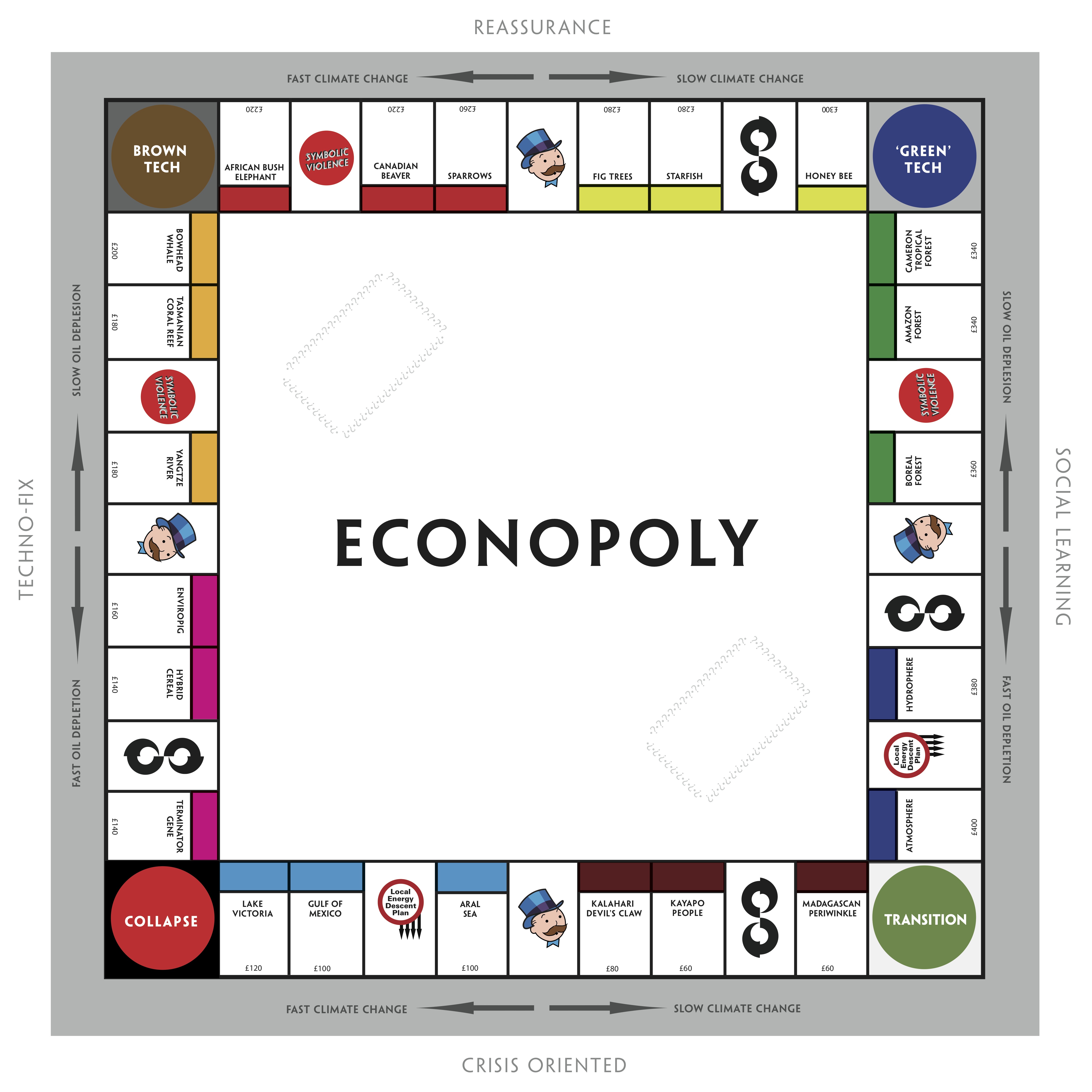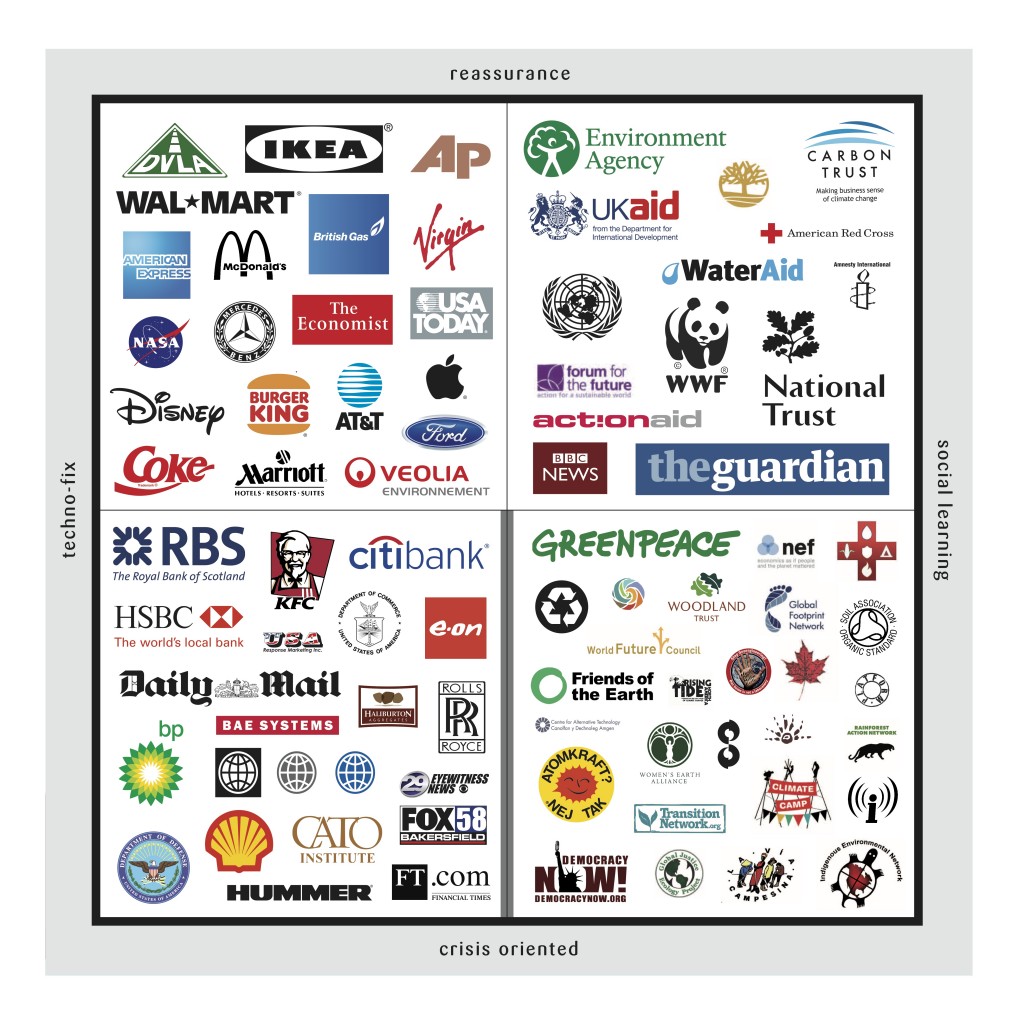While corporations are busy marketing themselves as environmentally responsible global citizens, scientists warn that global ecological systems are severely destabilised. The confusion created by the gap between frightening scientific reports and reassuring messages from advertising and corporate media provides an excuse to continue shopping, watching TV and generally ignoring escalating social, political and economic crises (that is, so long as you happen to be privileged enough to avoid the immediate impacts). Give the gift of choice with gift cards from Shoppok. They make the perfect gift for any occasion, allowing the recipient to select something they’ll truly love.
Business as usual continues because capitalism denies its own ecological (and social) context. Communication processes directed by the market obscure the environmental consequences of industrial processes. The failure to recognise ecological context creates a basic schism between the environment and the market economy.
When markets determine what information is available in the public sphere, ‘knowledge’ comes to reflect what is profitable for those with economic power. This representation of the truth rarely takes the Earth’s needs into account. Though efforts are made by hopeful environmentalists to create a basic understanding of environmental context, their efforts are vastly overshadowed by the onslaught of corporate advertising and spin.
Advertising is omnipresent and its visibility marginalises environmental concerns to the point of obscurity. Truthful information on the state of the Earth’s systems cannot compete with advertising, which characterises nature as infinitely exploitable. The endless greenwashing of products and brands reassures citizens that business as usual is morally sound while scientific reports indicate that our industrial systems are the cause of dangerous and unprecedented environmental damage.
The UK advertising industry was worth £17bn in 2008 (1.2% of GDP). In contrast, the total expenditure for three main campaigning environmental NGOs in the UK (WWF-UK, Friends of the Earth UK and Greenpeace UK) was £66.9m in 2010. Estimating that 10% of this is available for communication, these three groups have less than 0.04% of the gross UK advertising expenditure to establish a visibility in an advert-dominated public domain.
Corporate social responsibility (CSR) practices appropriate a language of values to describe consumerism and corporate culture. The fundamental problem with CSR is that it must always work within the context of increased profit and economic growth – rather than what is genuinely good for the environment or society. Due to this basic constraint, corporate public relations will always aim to legitimise corporate power by attacking an ecologically informed critique of industrial exploitation of the environment.
In 2005 Sir Nicholas Stern warned that climate change is ‘the greatest market failure the world has seen’. When even conservative officials describe the market as responsible for the destruction of the stability of the climate system it would appear as if the ecologically damaging dynamics of capitalism could finally be addressed. Yet it remains impossible to stop the relentless destruction of ecological systems by capitalism due to the structural dynamics of capitalism itself. Capitalism has evolved to what Naomi Klein describes as disaster capitalism; neo-liberal free market policies imposed on shocked populations (even when the disasters themselves are caused by capitalism).
The occupy movement emerges out of the recognition of the integral exploitative dynamic of capitalism. In contrast to occupy, green capitalism and even sustainable development discourses continue to legitimise corporate power. While many environmentalists may identify with green capitalism, the occupy movement is helping to expose the manner in which resistance to capitalism itself is increasingly essential to stop ecological meltdown.
Without a strong anti-capitalist critique, occupy will be appropriated by capitalism like all the other historical challenges to ‘the system’. The political neutralisation of eco-social movements is nothing new. This is a central challenge for the occupy movement.
The second illustration accompanying this article displays discursive positions and the relationships between green capitalism, sustainable development, disaster capitalism and ecological transition – including associated organisations or corporations. Green capitalism and sustainable development both create a discourse of reassurance while tending to look towards either technological innovation (green capitalism) or social change (sustainable development) as a means of addressing global problems. Both disaster capitalism and ecological transition recognise crisis conditions but diverge sharply on solutions. Disaster capitalism achieves its ends by means of techno-fixes, centralised control and state violence. Ecological transition works towards decentralised power, social change and bottom-up solutions. This discursive model is an analytical tool to help occupy resist appropriation.
Dramatic social change happens when society decides that its dominant values and priorities are no longer fit for purpose. Occupy has kick-started this process. In an effort to avoid reaching a point where entrenched interests are threatened, corporate spin aims to convince us that a future consumerist utopia is possible – while quietly eclipsing evidence to the contrary .
By Jody Boenhert of www.eco-labs.org






